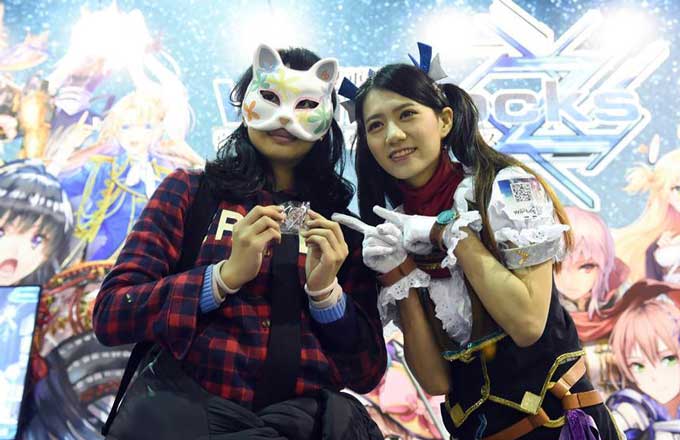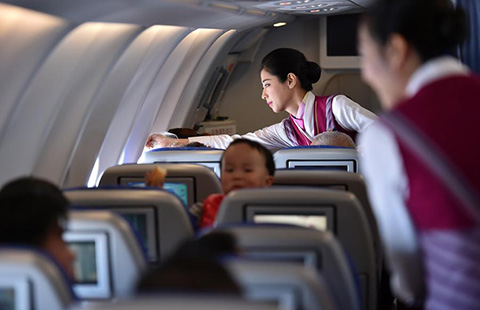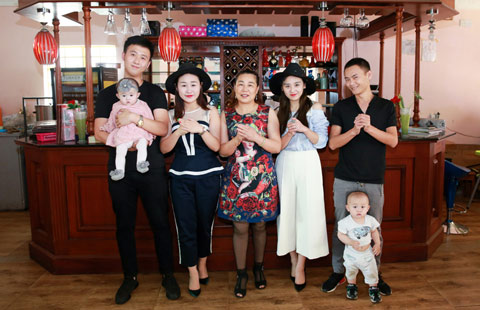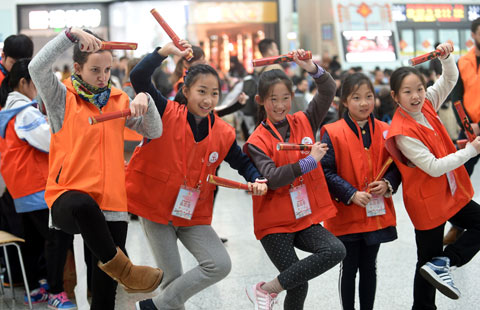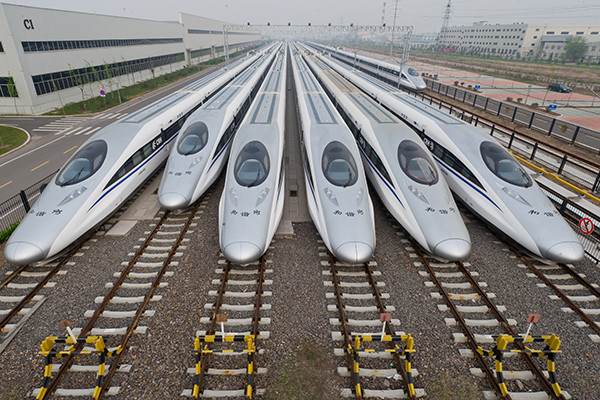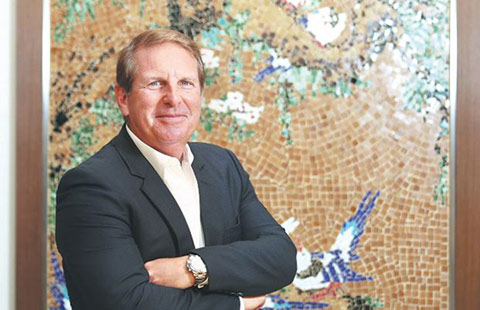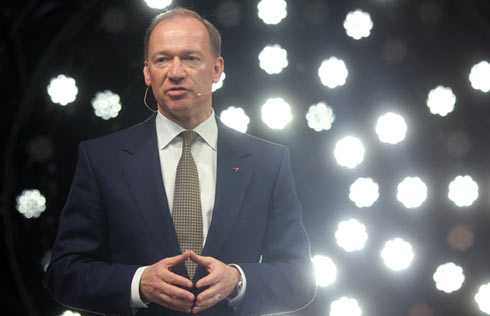To actualize potential, Chinese pay many yuan
At PlanBee Combat Training Club in Shanghai, participants aged under 10 to above 50 are punching sandbags and breathing heavily as sweat oozes out of their shiny bodies in all-wet sportswear, despite the late January chilly weather.
The club's members have increased manifold since its start in August 2016. Gao Lijun, 34, the first Chinese woman to win an international title in boxing, founded the club.
"More than 100 members have joined our community of combat and boxing, among which 60 percent are women and girls. We have girls under the age of 10, and grandmas-to-be. Here at the club, everyone can shrug off the stereotypes of who you are supposed to be, and achieve what you want to be through the punches," she said.
Gao started practising combat and boxing since her teenage years, and joined a Fortune 500 company after college. When she found that an increasing number of consumers were willing to invest more in sports as both entertainment and pro-health lifestyle, she decided to establish a club.
Gao and her co-founders met one another at boxing clubs, and came up with the idea to establish a club that meets the demand of urban residents-a clean, tidy place with professional coaches, friendly environment and inspiring atmosphere that would encourage people to "achieve self-actualization".
"All of the four co-founders have been practising combat and boxing for a long time; so, we understand the sport is not about violence, or sheer fighting. It is an activity that acquires earnest, direct contact. Boxing and combat are just channels to enable people to see what they can achieve through practising and improving. Ultimately, this is the demand we meet," said Gao.
The combat training club charges 400 yuan for one trial experience program, and up to 19,800 yuan for various types of membership.
"We think we are on the right tide to develop this niche market after studying local economic growth patterns. China is increasingly opening up to international markets, and, as wealth increases, consumers would like to achieve more, instead of buying more," said Gao.
Consumers' surging passion for sports or fitness activities is also reflected in the rising fame of sports celebrities who, in a sense, have stolen the thunder from film stars.
Zhang Yu, a fashion designer who has been practising Muay Thai for four months, said what she learnt the most from the experience is "never say you can't do something before you tried your best".
"I was scared by my own potential. I realize that through every kick, every punch and every drop of tear, one can become stronger, swifter, braver and more confident," she said.
Sports activity enthusiasts such as Zhang are widely found at fencing clubs, trampoline clubs and rock-climbing clubs. Their conviction is that physical activity, be it indoor or outdoor, makes them confident, brave and wiser.
"I used to a very lazy guy and I'd rarely do any kind of exercise nor go to any fitness club, until my girlfriend dragged me to a fencing club. I became obsessed with the training courses, and every step, move and piercing feeling so exciting. I lost 10 kilogram in two years, and I became more patient, analytical, and introspective, and my girlfriend said I am now much more charming than two years ago," said Zhang Mingfan, 26, a software programmer.
According to Julian Chow, analyst with Shanghai-based Tang Yue Culture and Communication, sports clubs have become popular thanks to consumers' rising self awareness.
"Sports clubs offer opportunities for consumers to evolve from the current level to a higher level. It also deepens one's perception of one's own personality. A day-time white-collar worker can have another after-hours life to challenge himself or herself at an activity club, improving self all the time," said Chow.




